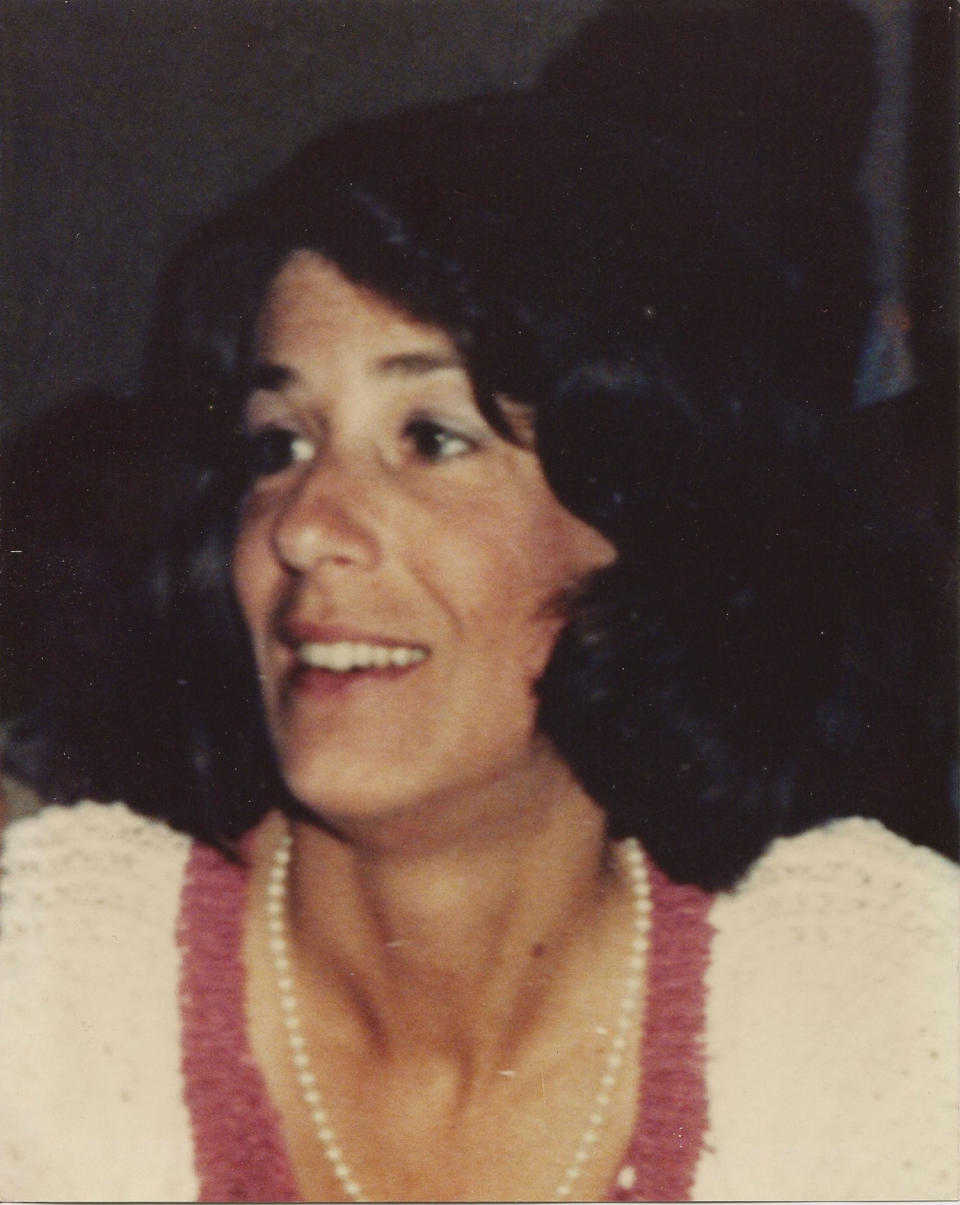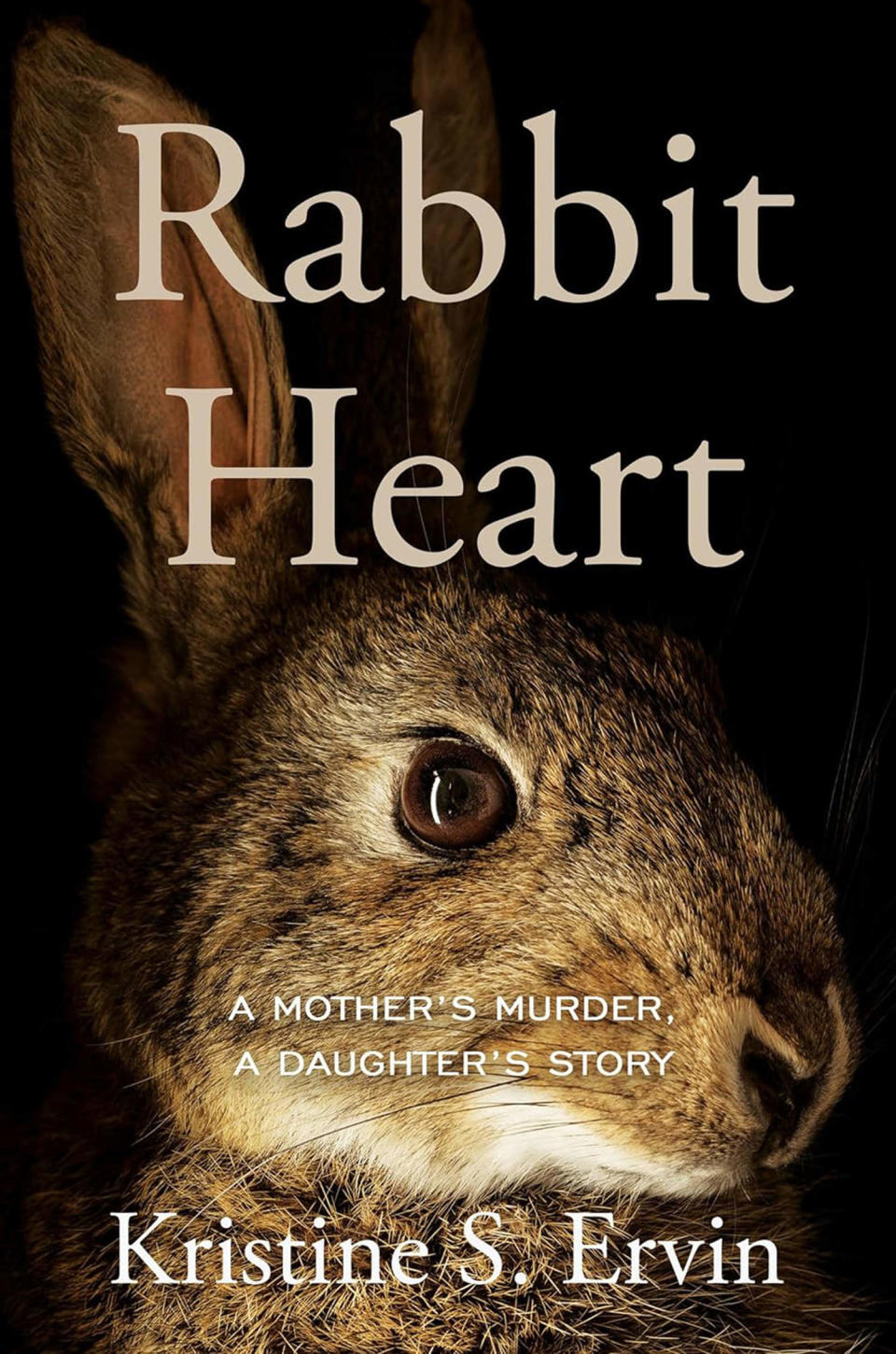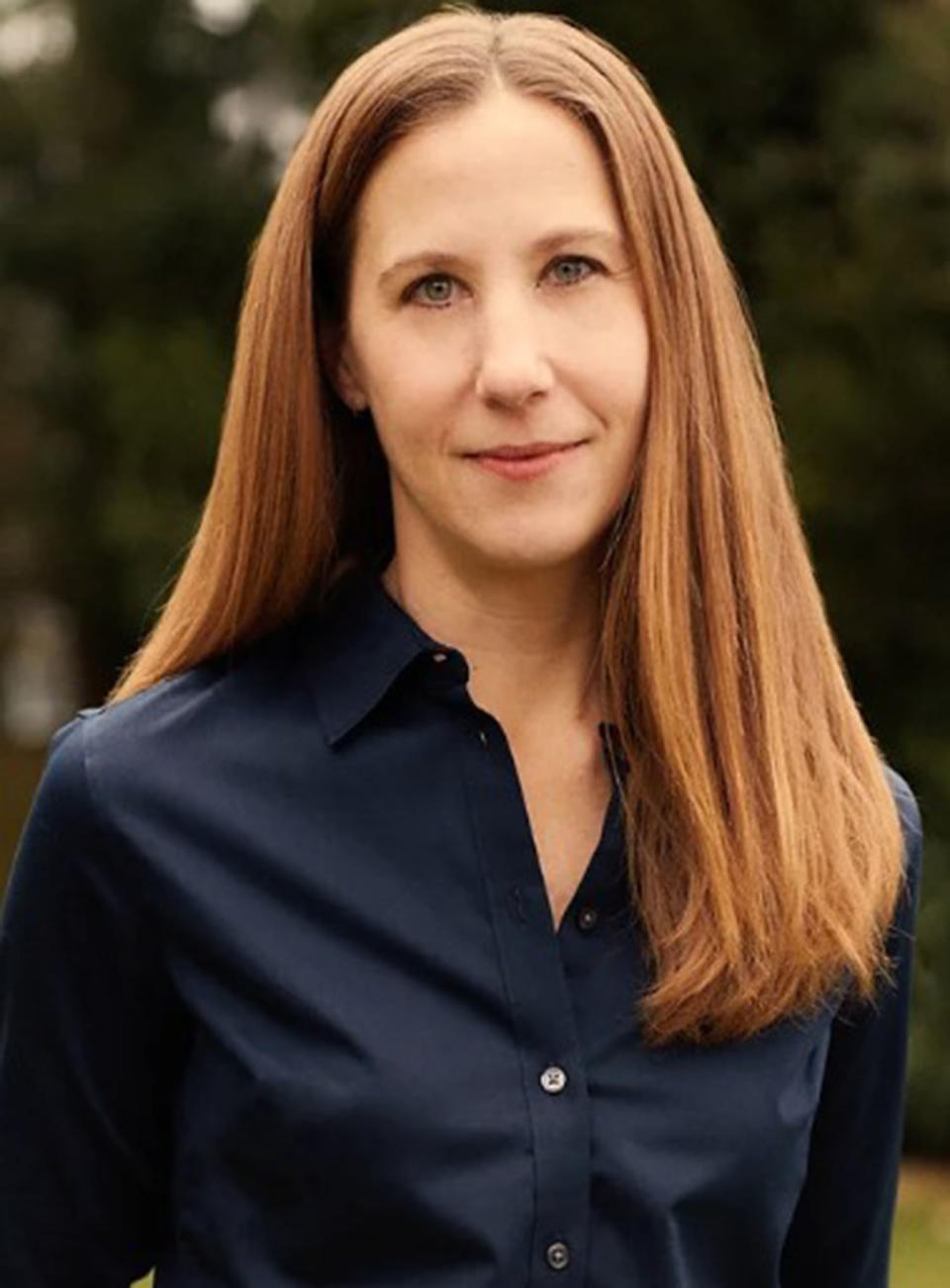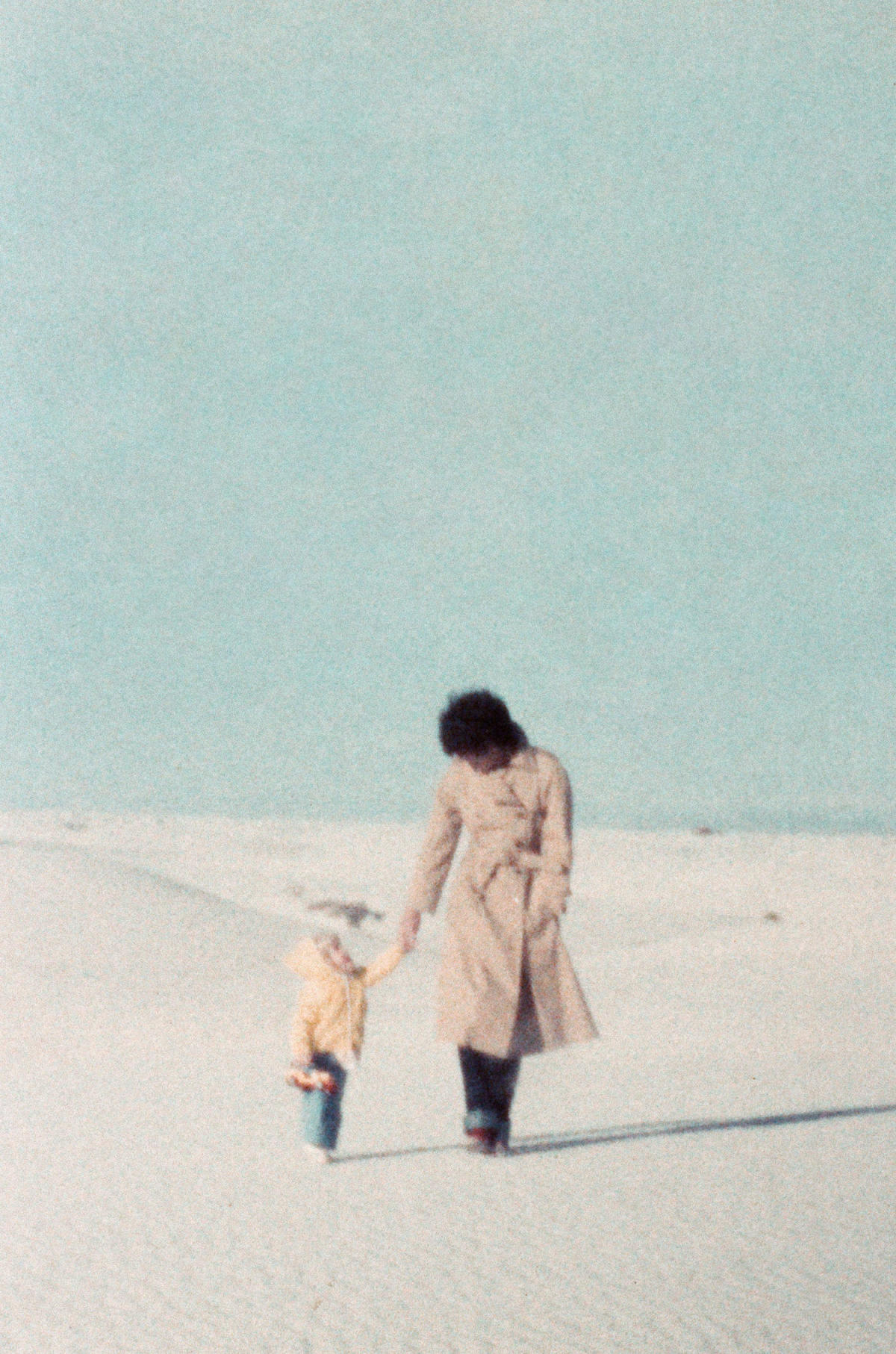When I read, years ago in the newspaper articles, that there were eyewitnesses, I had imagined small crowds standing on the curb outside the mall, how they held paper shopping bags, so heavy the handles creased their fingers. They were friends and family members who ate at El Chico together, shopped together, until this moment of parting in the parking lot. They laughed and were saying goodbye when they heard my mother scream, when they saw two men pulling on her, saw her kicking, fighting, biting, saw her fists trying to punch, her fingers to gouge. They were close enough to know she wore gold stud earrings. And the people did nothing but watch, too stunned, perhaps, to move. Too afraid to interfere. They simply stood there, their shopping bags weighed down as if by bricks, these people still as stone. And I hated them. Each and every one of them. For watching the show for minutes. I would have done something, I told myself. I would have thrown myself onto the car as the men drove away. I would have punched through the glass if I had to.

Instead of a crowd of people in their 30s, having aged not one day since I imagined them into being, I was confronted with Ron Hinther.
In my memory, though, he’s Roy. Because the journalist who wrote from Mom’s perspective wrote it as Roy in his cold case article, a mistake that ends up rewriting the real. Even though I know his name, I still see him as Roy with a heart-shaped face and small-framed glasses, a man with thinning hair who leaned forward on the witness stand, intent to answer questions.
He described how he and his roommate stopped by the mall and saw two men sitting on a planter at the entrance. The men “looked unkempt — unkept and sort of slouching, not having good posture,” he said. He looked at Melissa, the lawyer, as she asked her questions. He held his hands folded in front of his chest. “They seemed to just be sitting there and not do — and just watching.”
“And as you were walking to your automobile, did you notice something unusual?”
This was the moment my family and I had been warned about. “You’re going to hear difficult eyewitness testimony now,” the prosecutors told us just before they called Hinther to the stand.
This was the moment a person in the crowd would have to account for standing still.


“Yes,” Hinther answered. “We heard a woman yelling help … I saw a woman and two men, and I believe about — what I see in my mind and I’ve always — since that time have seen in my mind, as I see the back door of the car open, a man at the trunk area, a man kind of holding the door on the back of the door and the woman somewhere in between the two of them at the trunk area of the car on the right — the left side of the car . . .. It happened so quickly. I remember seeing a man hit the woman either in the neck or in the back, she lunges forward, and it kind of propels her into the back seat of the car.”
He paused a lot as he described it. He kept closing his eyes. He lifted his hand to his temple, as if to unlock, in exact detail, the 24-year-old memory.
“What I remember is the door was shut, a man gets in the front driver’s side, a man goes around the back, gets in the other side of the front door of the car, and that car is backed out in just seconds.”
“How about their height, their body build?” Melissa asked.
“Always being a small man myself, I know that they were larger than me, I felt like they — I used to sell men’s clothing and I felt — as I’m thinking about it now, probably a 42, 44 jacket,” he said. “It was just a simple thing of backing out of the — and I just remember the taillights. They just backed out into the driving area, and then there must have been a quick exit because I remember the hopeless feeling of standing there and watching those taillights go down Villa.”
He closed his eyes again and shook his head at the memory, and I was right there with him, in the parking lot of the mall, watching the taillights disappear. When he opened his eyes, there were tears in them, and I no longer hated him for doing nothing. Instead I wanted to hold him, this man who knew my mother as I did —“she had not black, but brown wavy hair and a fairly pale complexion” — who couldn’t shake the memory, couldn’t save her, even after all these years.
“Could you see any movement inside the car or anybody inside the car at that point?”
“I remember thinking I hope I can see her head, and I never saw her head rise above the window.”
Melissa passed the witness, and in the time of transitioning between one person at the podium to another, from notes being jotted down, legal pads stacked, folders prepped and passed from hand to hand, Roy and I lingered on that image of the window, waiting for Mom to lift her bleeding head.


The other attorney took the podium and asked him, “Would you say it was dark?”
“Well I — I kind of remember in my mind I see that Oklahoma glow in the — at the end . . .. At the time I do remember the car looking out over those — the row of cars, and it seems like I remember that sunset, just a little bit of red in the — at the edge of the earth.”
The lawyer didn’t pause to consider the backdrop, to wait in the moment of dusk and see the land, flat and dark, spreading out before him, the sky an indigo except at the horizon, where a spot glows red like an ember.
“So you’re saying it’s a four-door vehicle to the best of your recollection?”
“Correct.”
After a few more questions, Hinther was passed back to Melissa, who showed him pictures of the Colt. “Do you think — it could have been a two-door car that she was forced inside of?”
“I remember that the door seemed big, and I guess that’s why I was thinking there was a — that’s how they got in so fast, okay . . ..” Roy paused again, studying the pictures of the car, still frames of its taillights and doors. “Well, it makes sense to me that it was — it was difficult for her to get in because there was not a bench seat there, because I had often thought in my mind that she had landed on a bench seat, but she was — it was so hard for her — that’s why it was hard for her to get down and get back there as I see it playing in my mind. And then all they had to do was shut — get in right behind her. . .. To get in a car like that, I would have to put my foot in. And she got down so low, that’s what I — I couldn’t — I understand getting — you have to get down really low to get in those cars and that’s what I saw, and that explains why she was crouching so much.”
I watched Roy working it out, replaying it, the car in the photo now being rewritten in his mind. His testimony wasn’t as disturbing as I thought it would be. I listened to Roy and kept thinking, this is about memory, the slipperiness of it, the revisions and omissions, the mistakes. I wanted to tell him, We are not that different, you and I, trying to reconcile what lay in front of us with the picture in the past. I watched Roy tearing up and thought about bearing witness, how lost in the common usage of that phrase is its meaning of burden and weight, how his testimony was an attempt at atonement. I thought, there’s such unexpected beauty here, his voice trying to recover what’s been taken, the red at the edge of the earth.
Excerpted from “Rabbit Heart: A Mother’s Murder, A Daughter’s Story” by Kristine S. Ervin. Published with permission of Counterpoint Press. Copyright © 2024 by Kristine S. Ervin.
This article was originally published on TODAY.com
